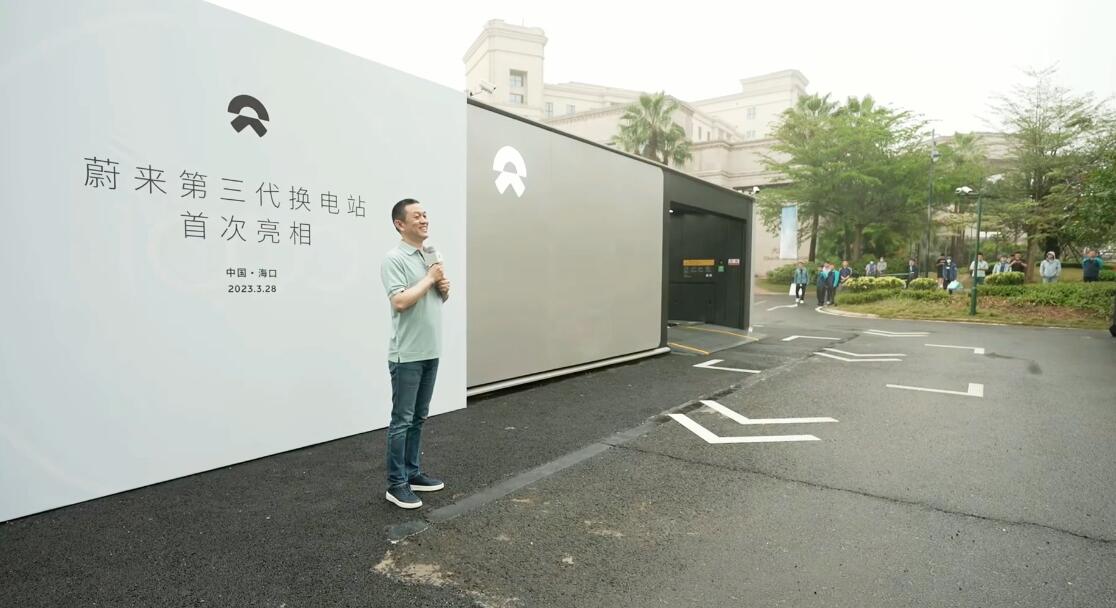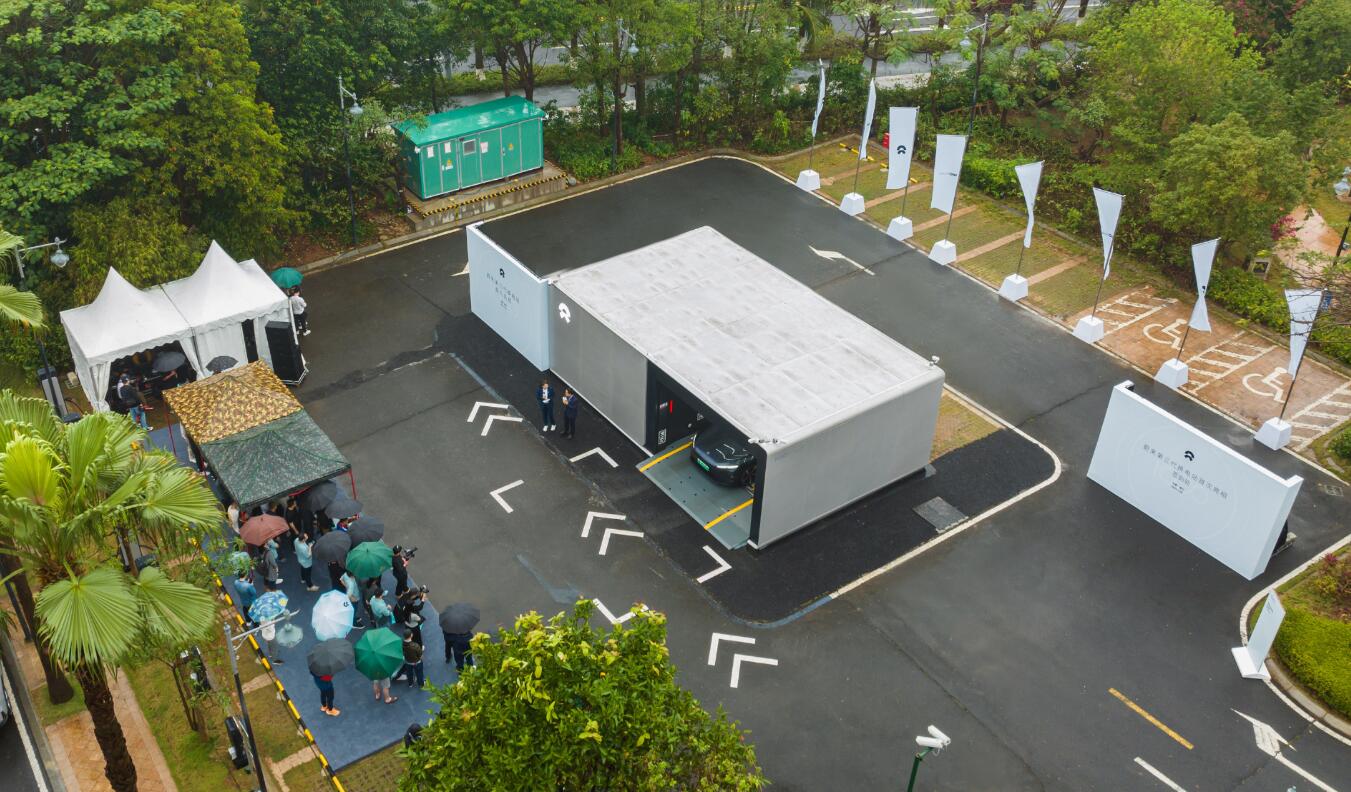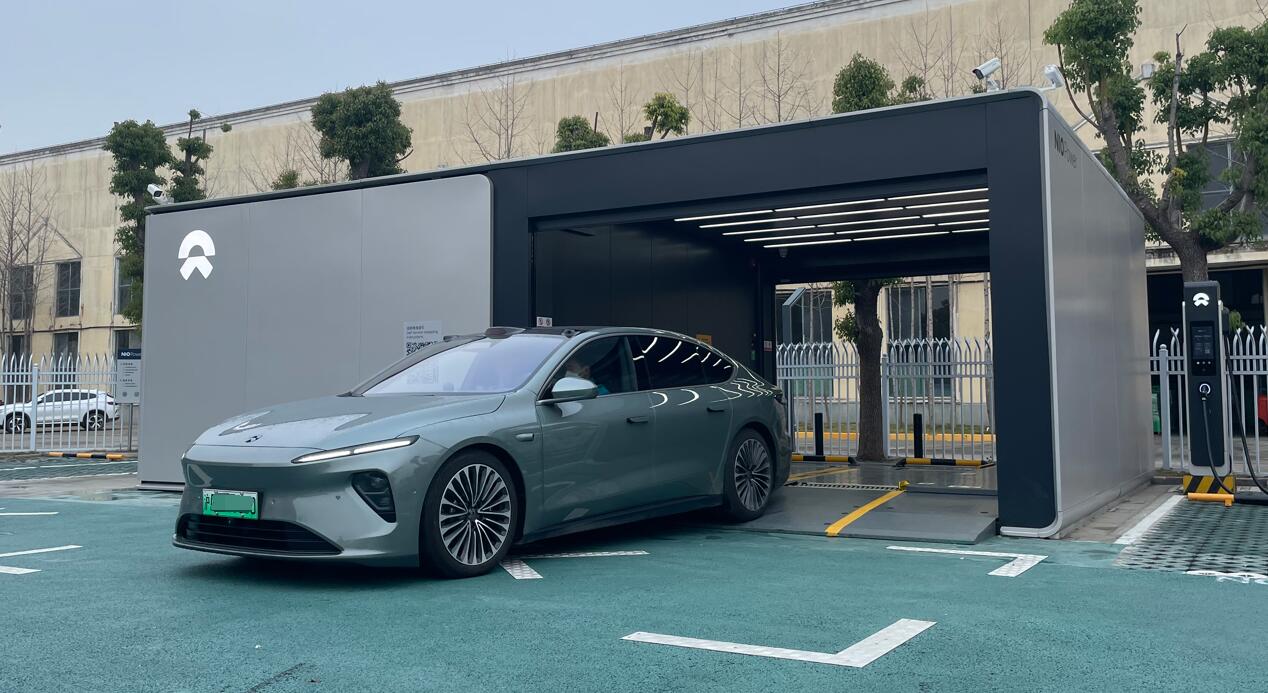Starting in June, Nio will basically keep building 120-150 battery swap stations per month, William Li previously said.

(A screenshot of a live video shows Nio CEO William Li introducing the company's third-generation battery swap station in Haikou.)
Nio (NYSE: NIO) today gave its third-generation battery swap station its real-life debut in a test run, though it didn't go live as previously teased.
The next-generation station made its debut today next to a hotel in Haikou, in China's southernmost province of Hainan.
Executives including William Li, founder, chairman and CEO of Nio, and Shen Fei, senior vice president of Nio Power, were present for the introduction of the trial run.

(Image credit: Nio)
Nio's third-generation battery swap station, unveiled at the Nio Day 2022 event on December 24, 2022, is capable of storing up to 21 battery packs, up from 13 for its predecessor generation and 5 for the first generation of the facility.
The latest facility increases the daily service capacity of a single station to 408, a 30 percent increase over the second generation.
Notably, some of Nio's third-generation battery swap stations will be equipped with two LiDARs and two Nvidia Orin chips, for a total computing power of 508 TOPS.
Nio announced plans to add 400 battery swap stations in 2023 late last year, but that plan was raised to 1,000 a month ago.
Li said on February 21 that the company will further accelerate the deployment of battery swap stations, aiming to have a cumulative total of more than 2,300 battery swap stations by the end of 2023.
Production of Nio's third-generation battery swap stations was well underway, with mass production expected to begin in April and deployment accelerating in May, Li said at the time.
Starting in June, Nio will basically maintain a construction rate of 120-150 battery swap stations per month, he said.
On March 20, Nio said in an article posted on the Nio App that the first 10 third-generation battery swap stations would go live on March 28.
However, this has not become a reality, and Nio's current plans appear to be consistent with the previous schedule.
Nio has already built some third-generation battery swap stations in cities including Beijing and Shanghai, although they have not yet been officially put into operation.
On March 23, CnEVPost visited Nio's delivery center in Jiading, Shanghai, where there is a third-generation battery swap station with the same exterior design as the previous two generations. The delivery center, Nio's largest in the world, opened on January 1.
(A third-generation battery swap station at Nio's delivery center in Nanxiang, Jiading, Shanghai. Image credit: CnEVPost)
Of the 1,000 battery swap stations Nio plans to add in 2023, about 900 will be third-generation facilities, Nio Power's Shen said at a media event last week.
The cost of equipment for Nio's three generations of battery swap stations is not very different, but the average cost per battery compartment has dropped significantly as service capacity has increased, Shen said at the time.
To date, the number of spare batteries in all of Nio's battery swap stations is roughly 11,000 to 12,000, Shen said in response to a question from CnEVPost.
Nio has added only 20 battery swap stations in China so far this year, bringing the total number of facilities to 1,325 so far, according to data monitored by CnEVPost.
The slowdown appears to be because Nio is waiting for the third generation of the facility to ramp up its capacity.

